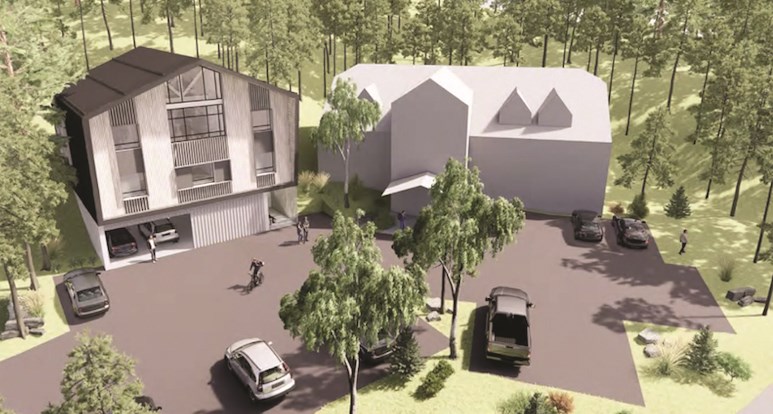A new Whistler Mountain Ski Club (WMSC) employee housing building in Creekside moved closer to fruition on Dec. 20 after Whistler council gave a related housing agreement bylaw its first three readings.
The WMSC proposal is for a three-unit, employee-restricted rental housing development located at 2028 Rob Boyd Way. The three dwelling units will consist of two one-bedroom units and one dorm-style apartment containing nine bedrooms.
Once fully built out, the building will be able to provide housing for 13 people, which is almost half the number of coaches the non-profit currently employs and will have a drastic effect on helping the organization recruit staff from around the world.
Councillor Cathy Jewett commended the inclusion of dorm-style units, a first for employee housing outside the village centre.
“I’m stoked to see this, because it is the first project with a dorm-style application. There are two one-bedroom units, but what is so great about this is that we see a dorm-style, and this is the very first one,” Jewett said.
WMSC first proposed the project in early 2019 as one of seven rezoning proposals received from private developers following an initiative from the Mayor’s Task Force on Resident Housing. Whistler’s mayor and council previously approved the building in April 2021.
WMSC board member Stan Kranjc is leading the staff-housing project, and believes it as an excellent step in the right direction for the organization and a way to help ease the pressure on other housing projects in the municipality.
“Just like everybody, any other employer in town, we’re no different, and this gives us an opportunity to self-solve our way out of [the housing] constraint that everyone’s feeling,” Kranjc said.
“We’re doing it through altruism and volunteerism to address our own staffing strains. In so doing it also relieves, in a small way, pressure elsewhere, because every coach that we can house, every newcomer into town that we can house in our facilities, that’s one less that somebody else has to solve for.”
Kranjc hopes the employee housing will help the non-profit attract and retain coaching staff, as housing has been the WMSC’s most significant challenge in recruiting new employees.
“Coaching is our lifeblood, that’s what we do, and we’ve been successful for 53 years and expect to be successful for another 53, but it all relies on employees,” he said.
“We seek the best coaches in the world to come here, and they all want to come to Whistler, but they need to know where they live.”
The housing agreement sets the parameters for how much a unit may be rented for, and gives priority to tenants employed by the WMSC. Failing that, the units would be available to anyone that meets the definition of resort employee.
The WMSC may also grant a master lease of one or more employee units to a qualified Whistler business.
Under the housing agreement, the maximum rent per bedroom in the nine-bedroom, dorm-style unit is $1,325, while the one-bedroom units are $2,040 per month.
Coun. Ralph Forsyth welcomed the project moving forward and commended such a small organization for taking on such a project, which he hopes will continue as a trend moving forward.
“I think moving forward to me, this is a great project, because it’s really a small business, granted with access to land; it’s not a big business developing them. So I think if we could incentivize those [types of projects, it would be good],” Forsyth said.
“I hope this is a template for smaller businesses moving forward to be able to build their own employee housing.”




